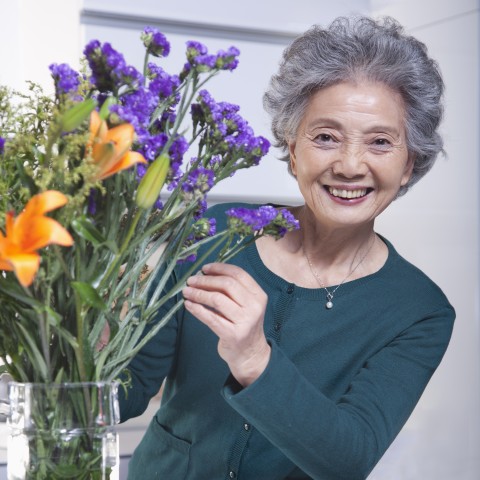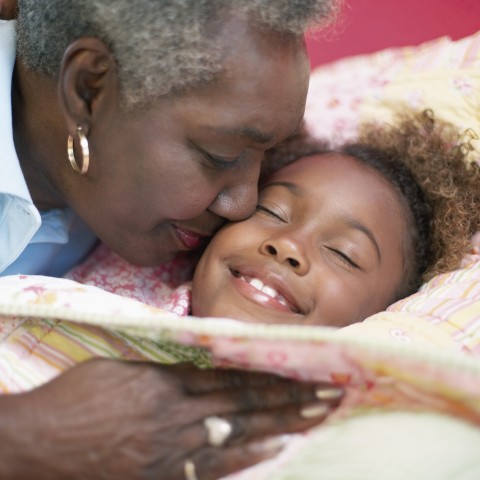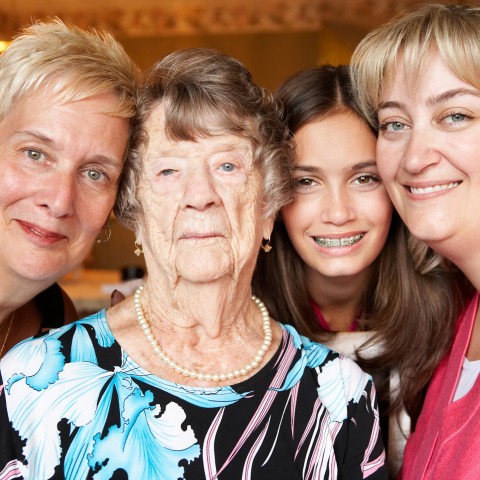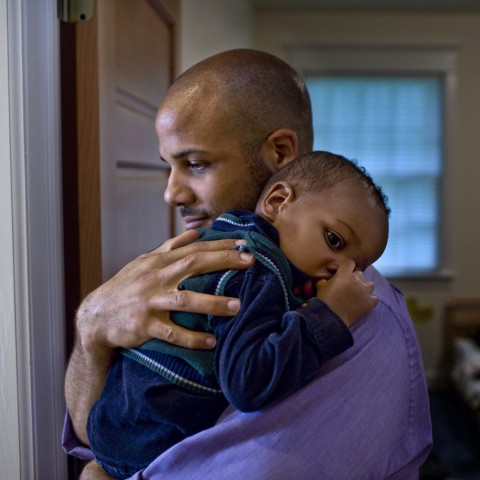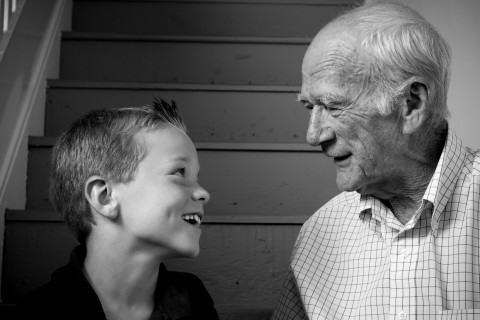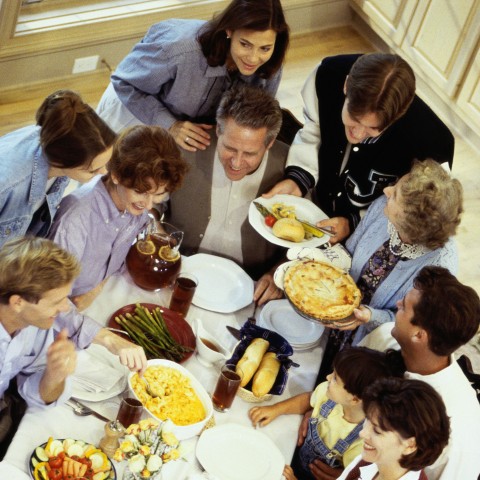Family is important in every culture, no matter what size or form it takes. Interaction with this group of people gives us our first relationship lessons in life. If these are disrupted, it can have an impact not only on all of our other relationships and the way we bond with others, but also how we see and experience ourselves.
At AfrikaansPod101, we’re aware of how important it is to know how to talk about families in Afrikaans. That’s why we’ve crafted this insightful article about Afrikaans words for family and family in Afrikaans culture, just for you!
What is the role of family in your culture? And how important is family to you personally? Share your thoughts with us in the comments section!
Table of Contents
- Family in Afrikaans
- Immediate Family in Afrikaans
- Extended Family in Afrikaans
- Afrikaans Terms for Marriage or Extended-Family Relationships
- How AfrikaansPod101 Can Help You Learn Afrikaans Family Terms
1. Family in Afrikaans
Family is a strong institution among most of the Afrikaans-speaking people of South Africa, with differences that largely depend on culture. South Africa hosts a very diverse people, with multiple cultures within its borders. Afrikaans is but one of eleven nationally-acknowledged languages. In Afrikaans, the term “family” (familie) tends to refer to relatives and extended family, while the nuclear family is called a gesin.
1- How to Use:
Afrikaans: Ons gesin gaan vandag strand toe.
Translation: “Our family is going to the beach today.”
Context: Use when the family unit consists of either a couple or single parent with their offspring.
OR
Afrikaans: DIe familie kom kuier elke Sondag.
Translation: “The family comes to visit every Sunday.”
Context: This can refer to either adult or child siblings of the parents, and/or grandparents, relatives, and extended family.
1.1 Families of European South Africans
Among Afrikaans-speaking Caucasians, families are modeled after the typical European or American family, with a great variety in expression. Tolerance for non-traditional families depends on social circles or where you live—in some areas of the countryside, for instance, small-town mentality will frown upon same-sex, single-parent, or even mixed race/culture families. In the cities and more populated areas, though, diversity is much more tolerated and accepted.
1.2 Families of African or Mixed-Race South Africans
Among Afrikaans-speaking people of color (which is not a derogatory term in South Africa, by the way), family tends to be a more important institution. This is not only, but strongly, due to cultural traditions steeped in a native philosophy that’s popularly called ubuntu.
Ubuntu is a Nguni Bantu term, meaning “humanity.” In Zulu, ubuntu is explained with the phrase Umuntu ngumuntu ngabantu, which literally translates as: “A person is a person through other people.” It’s understood that a person’s humanity and identity is shaped by, and sustained through, their relationships and connections with other people. Ubuntu has become a popular philosophical term which indicates the belief in “a universal bond of sharing that connects all humanity.” Of course, this includes the family.
2. Immediate Family in Afrikaans
“Close family” in Afrikaans refers to the nuclear family, as previously explained. Sometimes, this includes great-grandparents and grandparents, especially if they all live together.
The Afrikaans people love to use diminutive nouns to express endearment. Look for the suffixes –tjie or –ie—they’re everywhere!
Here’s our guide to help you learn family words in Afrikaans for those closest to you!
1- Great-grandmother
Formal: Groot-grootmoeder literally means “big-big mother.” People normally use this term with a possessive pronoun, not as a form of address. Such as in My groot-grootmoeder is siek. Translation: “My great-grandmother is ill.”
Informal: Oumagrootjie. This is used as above. Simply replace grootmoeder with oumagrootjie for a more informal term, which is used more often.
Form of address: To address their great-grandmothers, Afrikaans-speakers often use the same term as they do for “grandmother,” which is ouma, simply because it’s easier. Yet, some prefer to call this matriarch Oumagrootjie, and it’s not incorrect.
2- Grandmother
Formal: Grootmoeder, which means “big mother,” is used as in the previous example, normally with a possessive pronoun in more formal settings, and not as a form of address. Such as in: Haar grootmoeder is ‘n afstammeling van President Jan Smuts. Translation: “Her grandmother is a descendant of President Jan Smuts.”
Informal: Ouma means “old mother” and is used as a noun like above, but more informally. It’s the equivalent of an English “grandma.” This is also the most popular way to address a grandmother from either side of the family. Such as in: Ouma, ek is lief vir jou! Translation: “Granma, I love you!”
Common Terms of Endearment: Oumie or Oumsie.
Other Uses: Sometimes, the words ouma or oumatjie are used in reference to an elderly lady who’s not a relative. Such as in: Die oumatjie wat melktert verkoop op die mark is so vrolik. Translation: “The little old lady selling confectionery at the market is very joyful.”
3- Mother
Formal: A “mother” in Afrikaans is a moeder. Again, this is mostly used as a noun, and is a slightly formal term, such as in: Haar moeder is gister oorlede. Translation: “Her mother passed away yesterday.” It’s not a common form of address, but it’s not incorrect to use it this way.
Informal: Ma or Mamma, which translates as “Mom” or “Momma.” As above, these are used as nouns in a more informal setting. They’re also interchangeable and the most commonly-used terms of address that Afrikaans children or offspring use. Such as in: Ma/Mamma, hierdie nagereg is wonderlik! Translation: “Mom/Momma, this dessert is wonderful!”
Common Terms of Endearment: Moekie or Mammie or Moedertjie
See those diminutives?! These mostly translate as “Mommy.”
4- Daughter
Formal: A “daughter” in Afrikaans is dogter. This phrase is used, like in English, to indicate female offspring, as in: Marietjie is my dogter. Translation: “Marietjie is my daughter.”
Informal: There’s no distinction between formal and informal nouns with regards to offspring in Afrikaans.
Common Forms of Address: Parents address their children by their names or pet names. There’s no form of address to indicate family relations pertaining to children.
5- Granddaughter
Formal: Kleindogter is a literal translation of “little daughter.” It’s used as a noun, such as in English, to indicate relation: Marietjie is haar kleindogter. Translation: “Marietjie is her granddaughter.”
Informal: There is no distinction between formal and informal nouns with regards to grandchildren in Afrikaans.
Common Forms of Address: Grandparents call their grandchildren by their names or pet names, as there’s no form of address that indicates this type of family relation. Afrikaans for “grandchildren” is kleinkinders [plural] or kleinkind [singular].
6- Great-granddaughter
Formal: “Great-granddaughter” in Afrikaans is klein-kleindogter, and it literally means “little-little daughter.” This term is used as a noun, such as in English, only to indicate relation: Sy klein-kleindogter is baie mooi. Translation: “His great-granddaughter is very pretty.”
Informal: There’s no distinction between formal and informal nouns with regards to great-grandchildren in Afrikaans.
Common Forms of Address: Great-grandparents call their great-grandchildren by their names or pet names, as there’s no form of address that indicates family relations of this kind.
7- Sister
Formal: Suster is normally used only as a noun, such as in English, to indicate a sibling relationship: Sy suster is baie suksesvol. Translation: “His sister is very successful.”
Informal: Sus or Sussie. To indicate rank in family, the younger or youngest sister is often called kleinsus or kleinsussie, translating as “little sister.” An older sister is called ousus or grootsus, which translates as “older/big sister.” These are used as nouns, but they are also common forms of address.
Common Terms of Endearment: Siblings mostly call one another by their names or pet names, or sus. Sometimes, a sister and/or daughter gets called Sussa.
8- Great-Grandfather
Formal: Groot-grootvader literally means “big-big father.” As in the case of its female equivalent, this is a noun, not a form of address. For example: Sy groot-grootvader se plaas is deur familie geërf. Translation: “His great-grandfather’s farm was inherited by the family.”
Informal: Oupa-grootjie translates as “grandpa-big.” Like its female equivalent, this is an informal term for “great-grandfather.” Use as above, just replace groot-grootvader with oupagrootjie.
Common Terms of Endearment: To address their great-grandfathers, Afrikaans-speakers often use the same term as for “grandfather,” which is oupa, simply because it’s easier. Yet, many do prefer to address this patriarch as oupagrootjie, and it’s not incorrect.
9- Grandfather
Formal: “Grandfather” in Afrikaans is grootvader, which literally means “big father.” Like its female equivalent, this term is used as a noun, not a form of address. It gets used this way: Sy grootvader aan moederskant is van Frankryk. Translation: “His maternal grandfather is from France.”
Informal: A “grandpa” or “grandfather” in Afrikaans is called an oupa. It’s used as above, but in more informal settings (and literally translates as “old father” in English). So simply replace grootvader with oupa. This is also the most popular way to address a grandfather from either side of the family, such as in: Jou baard is so mooi, Oupa. Translation: “Your beard is lovely, Grandpa.”
Common Terms of Endearment: Oupie or Oupatjie or Oups
Other Uses: Sometimes, the words oupa or oupatjie are used in fond reference to an elderly person who’s not a relative. Such as in: Die oupatjie wat vrugte verkoop op die mark is so vriendelik. Translation: “The little old man selling fruit at the market is very friendly.”
10- Father
Formal: “Father” in Afrikaans is vader. It’s used the same way as its female equivalent, moeder, but mostly as a noun, not a form of address (unless the relationship is very formal). It’s most commonly used as a religious term for Father God, such as in Ons Vader wat in die hemel is… Translation: “Our Father in heaven…”
Informal: Pa or Pappa. When referring to a father, the word pa is used, such as in: My pa is baie ryk. Translation: “My dad is very rich.” Both are used as terms of address, too.
Common Terms of Endearment: Pappie or Paps
11- Son
Formal: A “son” in Afrikaans is seun. It’s used, as in English, to indicate an offspring relation, as in: Trevor is my seun. Translation: “Trevor is my son.”
Informal: There is no distinction between formal and informal nouns with regards to offspring in Afrikaans.
Common Ways of Address: Parents address their children by their names or pet names. There’s no term of address to indicate family relations pertaining to offspring. However, some Afrikaner parents address their son as seun, such as in English and American cultures.
12- Grandson
Formal: A “grandson” in Afrikaans is a kleinseun, and it’s literally a translation for “little son.” It’s used as a noun, such as in English, to indicate relation: Trevor is haar kleinseun. Translation: “Trevor is her grandson.”
Informal: There’s no distinction between formal and informal nouns with regards to grandchildren in Afrikaans.
Common Terms of Endearment: Grandparents call their grandchildren by their names or pet names, as there’s no form of address that indicates family relations.
13- Great-grandson
Formal: Klein-kleinseun, literally translates as “small-small son.” It’s used as a noun, like in English, to indicate relation, as in: Sy klein-kleinseun bly in Tzaneen. Translation: “His great-grandson is living in Tzaneen.”
Informal: There’s no distinction between formal and informal nouns with regards to great-grandchildren in Afrikaans.
Common Terms of Endearment: Great-grandparents call their great-grandchildren by their names or pet names, as there’s no form of address to indicate family relations.
14- Brother
Formal: Afrikaans for “brother” is broer. It’s used as a slightly more formal noun to indicate sibling relation, as in: My broer bly in Skotland. Translation: “My brother lives in Scotland.”
Informal: Boet or Boetie. Translation: “Bro.” These are used equally as forms of address and as nouns.
Common Terms of Endearment: Boeta. Also, when Afrikaners like you, you could well be addressed as Boet (even if you’re not related), especially in informal situations, like chatting around the signature braaivleis vuur (somewhat similar to a barbeque). Braai-ing is a famous South African form of social catering, and families often hold them at gatherings.
3. Extended Family in Afrikaans
As mentioned, the nuclear family (mother, father, and offspring) is called a gesin in Afrikaans. Other family (grandfather, grandmother, aunt, uncle, etc.) are usually referred to as familie.
These are the Afrikaans terms for relatives.
1- Uncle: Oom
Like the English “uncle,” oom is the title for the maternal or paternal brother and extended family of the parents.
Example: My Oom Kobus ry ‘n Mazda.
Translation: “My Uncle Cobus drives a Mazda.”
Children always use this term to address or refer to any adult male other than their father. In colloquial, informal Afrikaans, many adult Afrikaners also use the term to address or describe any male much older than themselves, irrespective of relation.
Example: Die oom eet ‘n koekie.
Translation: “The (uncle/old man) eats a cupcake.”
2- Aunt: Tant or Tante or Tannie
Tant or tante are the more formal nouns or forms of address for an older female relative.
Example: Tant Bettie verjaar vandag.
Translation: “It’s Aunt Betty’s birthday today.”
The diminutive, tannie, is the most commonly used term to describe or address the maternal and paternal sister/s (aunt/s) and extended female family members of both parents. Tannie is also used to address or describe any older female. Children always use this term for any adult female other than their mother.
Example: Die tannie koop piesangs.
Translation: “The (older lady/aunt) buys bananas.”
3- Cousin: Neef or nefie AND nig or niggie
Neef or nefie AND nig or niggie are all Afrikaans terms for “cousin.” These terms are used to describe the offspring of maternal and paternal siblings, meaning the children of related aunts and uncles. The terms are specific, and commonly only used to describe true relatives in modern times.
Neef is slightly more formal than nefie, and is used to address and describe the male cousin.
Example: Neef Pieter is terug in die Kaap.
Translation: “Cousin Peter is back in the Cape.”
Nig or niggie is the form of address (and noun) for the female cousin.
Example: My niggie Susan kom by ons kuier.
Translation: “My cousin Susan will be visiting us.”
4. Afrikaans Terms for Marriage or Extended-Family Relationships
Fortunately, these terms are more fixed, and indicate the specific extended-family relationships between people.
1- Husband and Wife: man en vrou OR eggenoot en eggenote
In an Afrikaans married couple (getroude paartjie), a husband is simply called man, and a wife is simply called vrou. These are the most commonly used terms, and they’re only distinguishable from “man and woman” (man en vrou) when a possessive pronoun is used (sy/haar/my, which is “his/her/ in English).
Examples: Sy vrou staan op. AND Haar man werk by die bank.
Translations: “His wife gets up.” AND “Her husband works at the bank.”
There are other, slightly more formal terms too: eggenoot (masculine) and eggenote (feminine). They’re used exactly the same way as man and vrou.
2- “Mother-in-Law” and “Father-in-Law”: Skoonma and Skoonpa
These terms for inlaws are used exactly the same way as in English. They translate literally as “clean mom” and “clean dad,” but this doesn’t hold any significance in their meaning!
Example: Haar skoonma dra ‘n pienk rok vandag.
Translation: “Her mother-in-law is wearing a pink dress today.”
3- “Sister-in-Law” and “Brother-in-Law”: Skoonsuster and Swaer
Skoonsuster translates literally as “clean sister,” but, again, that’s not what it means. It means “sister-in-law,” and an informal term is skoonsus.
Swaer is the term for “brother-in-law” and it’s a homonym for the Afrikaans word swaar, which means “heavy.” This is exactly what some Afrikaners affectionately call their brother-in-laws: Karel is my naaste heavy. Translated: “Carl is my closest brother-in-law.”
5. How AfrikaansPod101 Can Help You Learn Afrikaans Family Terms
We hope that we helped you expand your family in Afrikaans vocabulary, and that you now have a better idea of what family in Afrikaans culture looks like.
AfrikaansPod101, with its innovative online learning system, stands out among online learning platforms to help you master Afrikaans easily! Why not test it—quickly learn Must-Know Terms for Family Members in Afrikaans. Our lessons are culturally relevant, meaning they’re tailored not only to increase your language skills, but to also inform you of Afrikaner culture, such as the Afrikaans family structure.
When you sign up, you get instant access to tools like:
1- The Afrikaans Core 100 Word List
2- A new Afrikaans word to learn every day!
3- An extensive vocabulary list, regularly updated
4- A free Afrikaans online dictionary
5- Monthly video talks and shows to help you learn easier and faster, and stay motivated
6- Easy and fun ways to cement your new vocabulary by placing it in context, such as this recorded lesson about possessive pronouns called Who’s in These Family Photos?
Further speed up your learning with the help of a personal tutor, who will first assess your current Afrikaans language abilities to personalize your training and tailor it to your needs.
Hard work always pays off, and to help you in this, AfrikaansPod101 will be there every step of the way toward your Afrikaans mastery!






